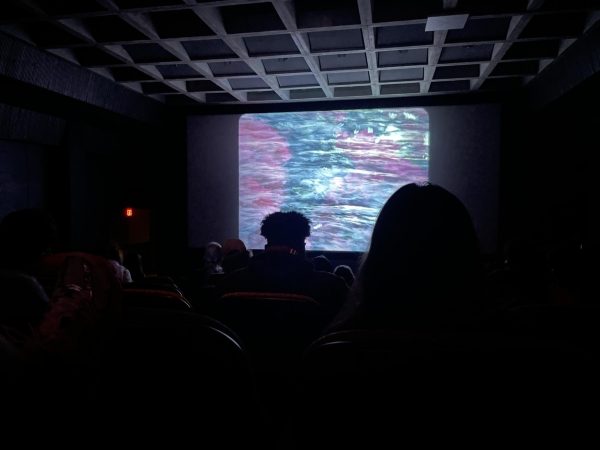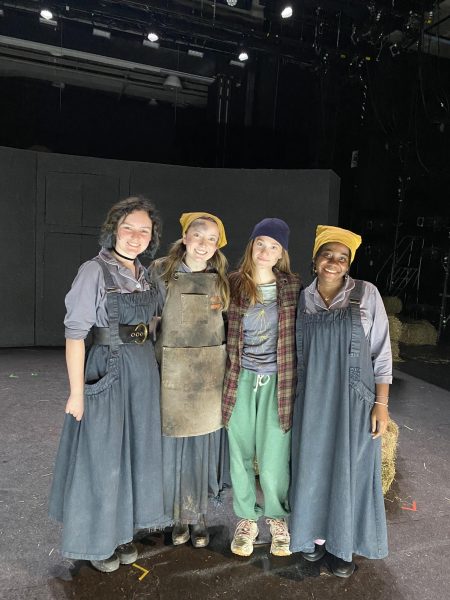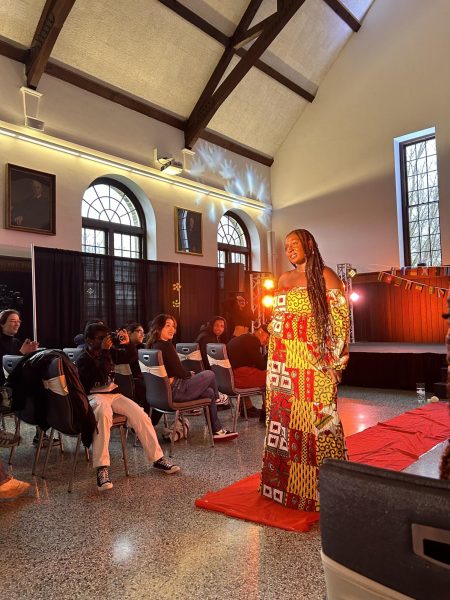Major Jackson’s Poems Command Attention
On the snowy, frostbitten afternoon of Thursday, March 1, poet Major Jackson filled the Robert Ho lecture room with warmth and creativity, his deep voice resonating over the podium and across the walls. Jackson, who is currently a professor of English at the University of Vermont and the poetry editor of The Harvard Review, uses a culmination of the rhythm of jazz and the beat of hip-hop to bring to life a rich lyricism speaking on personal, social and political dimensions. He presented to his audience pieces from his three collections of poetry: Holding Company, Hoops and 2001 Cave Canem Poetry Prize and National Book Critics Award Circle finalist Leaving Saturn. With a stylistic span of free verse and formal poems, Jackson creates visions of the resilience and bravery of his youth, meditations on social issues and representations of the wonders and tribulations of everyday life found in the world around him.
“Major Jackson has a huge poetic range, in terms of both content and form. I was so glad he touched on a little bit of everything,” senior Lauren Sanderson said.
Jackson was born and raised in Philadelphia. His childhood encounters and memories – ranging from barbershops, chess tournaments and neighborhood games of buck buck – served as essential inspiration later in life. On a steady diet of words since the age of three, Jackson’s love for poetry began as he read the work of Robert Frost in his grandparents’ home. He grew to be greatly influenced by the African American poets Gwendolyn Brooks, Derek Walcott and Langston Hughes. Jackson went on to study accounting at Temple University before returning to poetry as his calling in life. He then pursued an MFA in creative writing at the University of Oregon.
At his poetry reading, Jackson discussed his views on poetry as a transcendent force and as a medium of containing a narrative in a space and sound. He sees his poems as his way of changing language into feeling, evoking the expressive, soulful quality of music. Jackson cited the jazz composer and bandleader Sun Ra as a key influencer in his work, even going as far as naming his poetry collection Leaving Saturn in reference and in honor of him.
Each of Jackson’s pieces captures a certain sensual intensity and channels a unique experience through original imageries and rhythmic cadences. Some of most powerful poems operate as a kind of time capsule to represent the thoughts, observations and myths of the contemporary world. Jackson believes it is the poet’s responsibility to reflect on the issues and experiences around him; for example, Jackson wrote his poem “Ferguson” as an expression of race relations in the United States following the police shooting in Ferguson, Missouri.
By the time Jackson ended his poetry reading, the audience was moved by his fusion of the magnetic marvels of personal experience with the sharp edges of history, literature, art and music.
“I really enjoyed Major Jackson’s reading because he displayed many distinct styles of poetry through the combination of both lyric and narrative poems,” first-year Bridget Kolsky said. “In his [readings] Jackson not only presents gratifying metaphors and imagery, but he also quickly moves between humorous and earnest lines, which captured my attention.”
Contact Celine Turkyilmaz at [email protected].
Celine Turkyilmaz is a senior from Chicago, Illinois concentrating in English. She's previously served as a copy editor, news editor and reporter. She...







